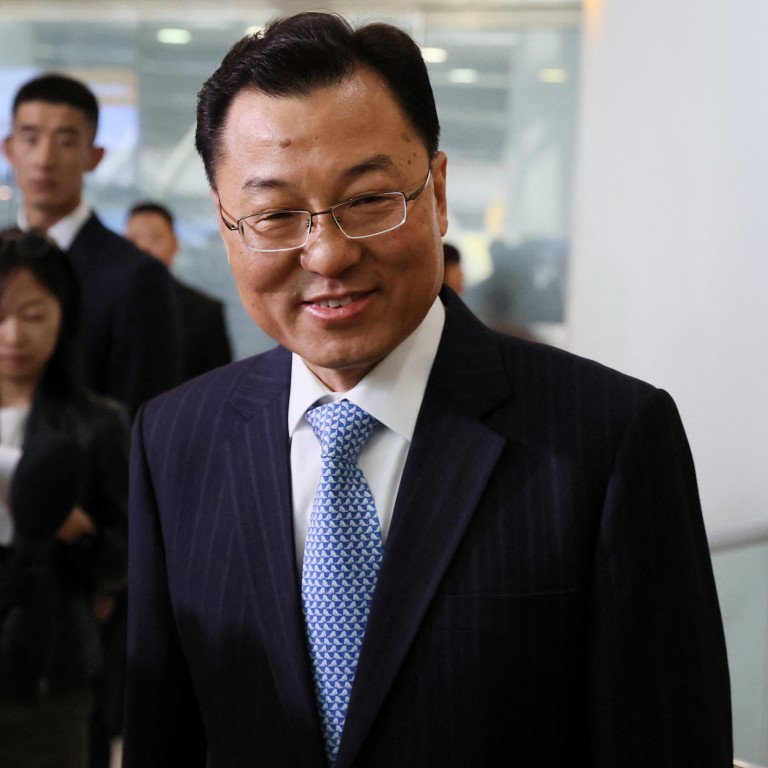
Top Beijing envoy to US criticises Biden’s moves targeting Chinese products over national security
- Seeing e-vehicles as ‘iPhone on wheels’ or cargo cranes as ‘Trojan horses’ yields never-ending cycle and ‘excessive anxiety’, says Ambassador Xie Feng
- Diplomat appears to reference US investigation into connected technology used in Chinese vehicles and actions meant to make American ports more secure
“If ‘de-risking’ is all about China, it means lost opportunities and lose-lose outcomes,” it added. “After all, with over 70,000 American companies investing in China and the two economies so closely connected, a forced ‘decoupling’ can be too expensive.”
Acting on alarms sounded by American officials and others in Washington that Beijing could remotely operate Chinese-manufactured cranes to disrupt the flow of goods and reveal information about US military shipments, Biden last month signed an executive order to mandate the reporting of cyber incidents.
US raises alarm as Chinese platform corners global shipping logistics market
Warnings about port vulnerabilities have included a report published last year by the Brookings Institution spotlighting the Chinese commercial logistics platform Logink, which collects information on shipping and cargo movement worldwide and provides tracking, data management and other services free of charge.
The Biden administration also plans to invest more than US$20 billion in American port infrastructure over the next five years, including an effort to onshore US crane manufacturing.
Logink, which describes itself as a “one-stop logistics information service platform”, began as a provincial programme in China in 2007. It became part of a regional network in northeast Asia in 2010 and a global platform after 2014.
Just days later, the US Commerce Department announced that its investigation into “connected” car technology developed by China could lead to the imposition of restrictions on these products.

